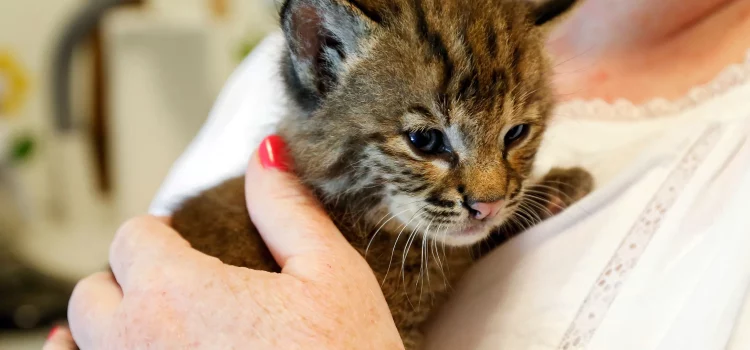
Training Kittens , with their curious and playful nature, are not only adorable companions but also highly trainable pets. The science behind training these furry felines encompasses understanding their developmental stages, utilizing effective training techniques, and acknowledging the significance of early training.
Understanding the Developmental Stages of Kittens
Birth to 3 Weeks: Neonatal Stage
During this stage, kittens are completely dependent on their mother for nourishment and warmth. Their eyes and ears are closed, and they rely on touch and smell to navigate their environment.
3 to 7 Weeks: Transitional Stage
Kittens begin to explore their surroundings, developing their senses and coordination. They start to play with littermates and learn essential social skills.
7 to 14 Weeks: Socialization Stage
This critical period is when kittens are most receptive to new experiences and learning. Positive interactions with humans, other animals, and various environments are crucial for shaping their behavior.
14 Weeks Onward: Juvenile Stage
Kittens enter adolescence, refining their motor skills and behavior. They may test boundaries and exhibit more independence, making it an ideal time for advanced training.
Importance of Early Training
Early training lays the foundation for a well-behaved and adaptable cat. Introducing kittens to positive experiences and basic commands early on enhances their confidence and responsiveness.
Basic Training Techniques for Kittens

Litter Box Training
Providing a clean and accessible litter box encourages proper elimination habits. Consistency and positive reinforcement are key to successfully litter training kittens.
Positive Reinforcement
Reward-based training using treats or praise reinforces desirable behaviors and strengthens the bond between kitten and owner. Patience and consistency are essential for effective positive reinforcement.
Socialization
Exposing kittens to different people, animals, and environments helps prevent fearfulness and aggression later in life. Gradual introductions and positive associations promote sociability in kittens.
Claw Maintenance
Teaching kittens to use scratching posts and providing appropriate outlets for their natural scratching behavior helps protect furniture and promotes healthy claw maintenance.
Advanced Training Methods
Clicker Training
Clicker training utilizes a clicker device paired with rewards to mark and reinforce desired behaviors. It is an effective method for teaching tricks and shaping complex behaviors.
Harness Training
Introducing kittens to a harness and leash allows for safe outdoor exploration under supervision. Positive associations and gradual acclimation are crucial for successful harness training.
Target Training
Target training involves teaching kittens to touch a designated target, such as a stick or hand, to prompt specific behaviors. It can be used to teach commands and shape desired actions.
The Role of Play in Training
Play serves as a natural form of learning for kittens, allowing them to practice hunting skills, socialize, and release excess energy. Incorporating play into training sessions enhances engagement and motivation.
Training Kittens for Specific Tasks
Clicker Training for Tricks
Kittens can be trained to perform a variety of tricks, including sitting, rolling over, and fetching. Consistent practice and positive reinforcement help reinforce learned behaviors.
Harness Training for Outdoor Adventures
Harness training enables kittens to safely explore the outdoors while preventing them from wandering off or encountering potential hazards. Supervision and gradual exposure to outdoor stimuli are essential for successful harness training.
Understanding Feline Behavior
Understanding feline behavior, including body language and communication cues, enhances communication and strengthens the bond between owner and kitten. Observing and responding to subtle cues fosters mutual understanding and trust.
Common Challenges in Training Kittens
Aggression
Addressing aggressive behaviors in kittens requires patience and understanding. Redirecting negative behaviors, providing appropriate outlets for play, and seeking professional guidance can help manage aggression.
Scratching Furniture
Preventing furniture scratching involves offering suitable alternatives, such as scratching posts or pads, and using deterrents to discourage unwanted behavior. Consistency and positive reinforcement promote desirable scratching habits.
Jumping on Countertops
Discouraging kittens from jumping on countertops involves removing temptations, such as food or interesting objects, and providing alternative elevated surfaces for exploration. Redirecting attention and using deterrents can help modify behavior.
Addressing Behavioral Issues
Addressing behavioral issues in kittens requires identifying underlying causes and implementing appropriate training and management strategies. Consistency, patience, and positive reinforcement are key to addressing and preventing problem behaviors.
Conclusion
Training kittens is both an art and a science, requiring patience, consistency, and understanding of feline behavior. By employing effective training techniques and nurturing positive relationships, owners can help kittens develop into well-behaved and adaptable companions.
_______________________________________________________________________
FAQs
What age should I start training my kitten?
-
- It’s best to start training kittens as early as possible, ideally around 7 to 8 weeks of age, when they are most receptive to learning.
How often should I train my kitten?
-
- Training sessions should be kept short and frequent, ranging from 5 to 15 minutes several times a day to maintain engagement and prevent fatigue.
Can older cats be trained?
-
- While it may take more time and patience, older cats can still learn new behaviors through positive reinforcement training techniques.
What if my kitten is not responding to training?
-
- If your kitten is not responding to training, reassess your methods and consider seeking guidance from a professional animal behaviorist or trainer for personalized advice.
Is punishment an effective training method for kittens?
-
- Punishment can have negative effects on kittens and may lead to fear or aggression. Positive reinforcement techniques are generally more effective and promote a trusting relationship between owner and kitten.










